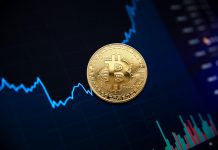Gresham’s law is a monetary principle which indicates by: “bad money drives out good money”. For example, if there are two types of money in circulation having similar face value, the more valuable commodity will gradually disappear from circulation. Gresham’s law establishes the principles of “good money” and “bad money” and deals with the substantiation of their value.
Henry Dunning Macleod named this law in 1860. Since then, it bears the name of the English financier Sir Thomas Gresham. Nicolaus Copernicus published a similar idea in the 16th Century; for this reason, his name sometimes features in the law’s title. If you want to know more about Gresham’s law, click here: https://en.wikipedia.org/wiki/Gresham%27s_law
Bad money and good money
So, what do the concepts of “good” and “bad” money refer to? Good money is that which bases its value on the intrinsic value of the coin material. The value of bad money is greater than that of its physical material. This means that the users of bad money will prefer to use it over good money since its intrinsic value is inferior. By keeping their good money, users ensure that their assets retain their purchasing power in the future.
The value of money
To reiterate, the value of money can derive from an authority (in the case of bad money) or from the intrinsic worth of its material (this is the case of good money). Gresham’s Law then predicts that when both types of money compete in an economy, the good money will stop circulating since users will tend to keep it. Once bad money decreases in value, users might melt or sell their good money for the precious metals it contains, making it disappear.
The debasement of coins
The term “debasement” alludes to bringing down the value of a currency, especially one dependent on precious metals, by including in them less valuable materials. By blending the valuable metals in with a lower quality metal, governments have the option to make extra coins, basically extending their circulating cash. Governmental bodies have intentionally debased their means of payment since ancient times. Around 1965, the USA and Canada performed the most substantial debasement of coins in history. Nowadays, money does not bear almost any intrinsic value and governments issue coins made of valueless metals. This money is called fiat money.








